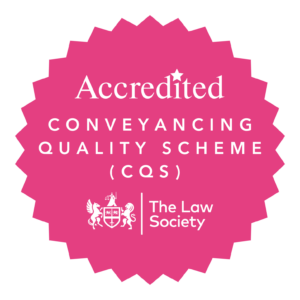Residential Conveyancing

Dunham Guest & Lyons has been awarded the Law Society’s Conveyancing Quality Scheme (CQS) accreditation, a benchmark for practices carrying out residential conveyancing to recognise standards of competence, risk management and client service levels.
Moving home can be a stressful experience at the best of times. Our residential conveyancing team provides straightforward, clear advice on all aspects of residential relocation and ensure that the process runs as smoothly as possible. The team has an excellent reputation and has forged strong relationships with local surveyors and property agents.
Our services are competitively priced and we offer advice and representation on a variety of conveyancing matters including re-mortgages, sales and purchases of freehold and leasehold properties, plot sales and equity transfers.
Many clients continue to instruct us move after move, and recommend their friends and relations to use us.
Where appropriate we can put you in touch with experienced independent financial advisers, estate agents, surveyors and other professionals.
In the vast majority of cases we are able to work on a fixed fee basis, as per the attached scale of conveyancing costs. However sometimes there may be unexpected complications or problems with a conveyancing transaction requiring additional work. In those cases we will endeavour to agree a fixed fee for the additional work, or advise you of the hourly charging rate of the fee-earner dealing with the file (currently £250 per hour, plus VAT (currently at the rate of 20%)) and give you our best estimate of the likely time required.
View our residential conveyancing costs
Additional Costs
In addition to our costs, the following disbursements may also be payable to third parties:
- Land Registry office copy fees to obtain copy documents (the fee is currently £14 per title and a further £7 for each supplementary document).
On a purchase transaction:
- Search fees (for example local authority, mining, drainage and environmental searches) typically around £300.
- Stamp Duty at the prevailing tax rates, calculated as a percentage of the purchase price of the property being purchased.
- Land Registry fees in accordance with the Land Registry fee scale from time to time, again depending on the purchase price/consideration of the property. Fees are typically between £40 and £270, depending on whether title to the property is registered or not.
We will be able to advise exact figures when we receive details of your proposed transaction.
The above disbursements do not attract VAT.
As far as the timescale for residential conveyancing transactions is concerned it is notoriously difficult to predict the timescale in advance as there are so many variable factors outside our control. We would typically estimate around twelve weeks, but transactions can complete in a shorter timescale or take much longer depending on whether you are part of a chain of transactions, response times of search providers, other solicitors, surveyors and mortgage lenders and the number and complexity of enquiries raised and issues encountered.
The key stages of a residential conveyancing transaction can be broadly summarised as follows:
- Pre-contract enquiries. This is where the solicitor for a prospective buyer builds up as much information as possible about the property, by analysing the title deeds and other relevant documents, carrying out searches, reviewing surveys and reports available and asking questions of the seller’s solicitors, and then reporting to the prospective buyer.
- Exchange of contracts. When stage 1 has been completed to the reasonable satisfaction of the buyer a completion date will be agreed between the parties and signed contracts will be exchanged between solicitors, thereby creating a legally binding agreement to proceed and fixing all the terms of the deal.
- Completion. This is the actual date of change of ownership of the property. The purchase price is paid to the seller’s solicitors on the completion date and keys are handed over to the buyer, who then takes vacant possession of the property (or the right to receive the rental income in the case of a tenanted investment property).
- Registration. Post-completion the buyer’s solicitor will submit an application to the Land Registry to formally register the buyer as the new owner of the property, and then report to the buyer and (if relevant) their mortgage lender.